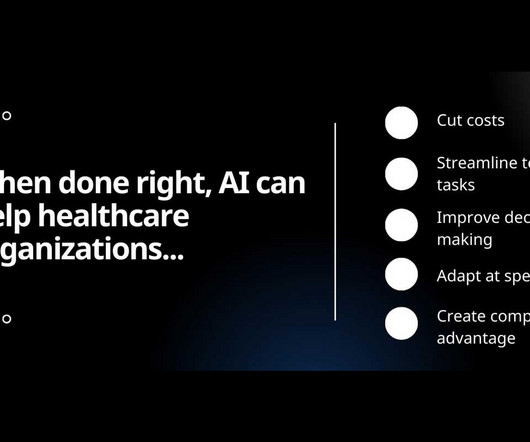Healthcare Interoperability Requires Better Data Integration Across The Healthcare Ecosystem: Now and In The Future
Electronic Health Reporter
JUNE 15, 2021
While interoperability has always been one of healthcare’s greatest pain points, the last year or so has emphasized these challenges with the rising demand for data integration […]. Q&A with Lyniate’s chief strategy officer, Drew Ivan.























Let's personalize your content